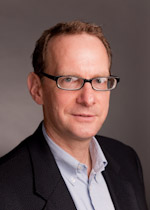SAN FRANCISCO, May 3, 2018 — Vivid Vision, a San Francisco-based eye care start-up, has signed an exclusive license agreement with The Research Foundation for The State University of New York to employ a new device to treat lazy eye and other disorders of binocular vision invented by Dr. Benjamin Backus, an associate professor at the SUNY Optometry, with his colleagues Dr. Kenneth Ciuffreda and Dr. Diana Ludlam. The patented system uses eye tracking to provide direct and precise binocular visual stimulation at known locations on the retinas of both eyes simultaneously. The idea is to train neurons to function appropriately, Vivid Vision said.

“Hebbian learning, which strengthens synaptic connections, is an important mechanism of neuroplasticity—the brain’s remarkable ability to change its structure and organization to compensate for illness or injury and adjust to new situations,” Dr. Backus explained. “It’s exciting to see this basic science research idea being developed in a real-world product to help people see better.”
Vivid Vision is building a vision care platform that works with new virtual reality technology to treat amblyopia, strabismus (the most common cause of amblyopia), and disorders of binocular vision. Dr. Backus, whose work at the SUNY Optometry focuses on understanding how binocular vision works, joined Vivid Vision as chief science officer.
“We believe eye tracking is integral to the next generation of treatment tools for binocular dysfunction such as amblyopia, strabismus and convergence insufficiency,” said Vivid Vision CEO James Blaha. “We couldn’t develop these new tools without collaboration with the Research Foundation for SUNY and the licensing of their patent. Having Dr. Backus as our chief science officer at Vivid Vision ensures we can translate this exciting technology into clinical practice.”
Dr. David Troilo, vice president and dean for academic affairs at SUNY Optometry, noted, “The research on binocular visual function that is the basis of this technology was conducted as part of SUNY Optometry’s active research mission on the eye and vision. Translating our research efforts to improvements in patient care is a major goal at the college. We are very pleased that Vivid Vision will help us make this a reality for patients with these conditions.”
About RF
The Research Foundation for The State University of New York (RF) is the largest comprehensive university-connected research foundation in the country. Research at SUNY produces more than 200 new technologies a year. RF protects the intellectual property generated at SUNY campuses and works with industry and businesses, like Vivid Vision, to translate research discoveries into commercial products that benefit society and spur economic development.
About SUNY Optometry
Founded in 1971 and located in New York City, the State University of New York College of Optometry is a leader in education, research, and patient care, offering the Doctor of Optometry degree as well as MS and PhD degrees in vision science. The College conducts a robust program of basic, translational, and clinical research and has 65 affiliated clinical training sites. SUNY Optometry is regionally accredited by the Commission on Higher Education of the Middle States Association of Colleges and Secondary Schools; its four-year professional degree program and residency programs are accredited by the Accreditation Council on Optometric Education of the American Optometric Association. All classrooms, research facilities, and the University Eye Center, which is one of the largest optometric outpatient facilities in the nation, are located on 42nd Street between Fifth and Sixth Avenues in midtown Manhattan.
Media Contact: Amber E. Hopkins-Jenkins, 212.938.5607, aehopkinsjenkins@sunyopt.edu